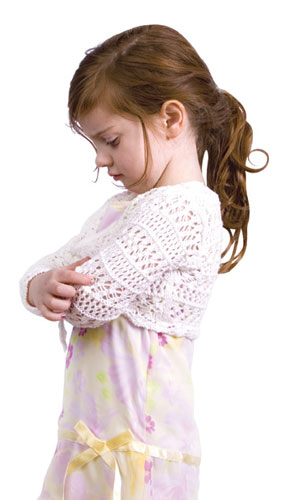Social Interactions
Sharing
Learning to share can be a challenge for young children, but sharing is a skill they need for play and learning throughout childhood.
Why sharing is important? Sharing is a vital life skill. It’s something toddlers and children need to learn in order to make friends and play cooperatively. Once your child starts having playdates and going to child care, preschool or kindergarten, he’ll need to be able to share with others.

Helping your child learn to share - Children often take their cues from what they see their parents doing. When you model good sharing and turn-taking in family life, you give your children a great example to follow.
Other ways to encourage sharing include the following:
- Point out good sharing in others. You can say things like, ‘Your friend was sharing her toys really well. That was very kind of her’. You can also point out sharing examples in any books, DVDs or TV shows your child enjoys. For example, you could say things such as, ‘Look at Karen and Rhys sharing the playdough on Playschool. They’re having so much fun!’
- When you see your child trying to share or take turns, make sure you give lots of praise and attention. For example, ‘I liked the way you let Aziz play with your train. Great sharing!’
- Play games with your child that involve sharing and turn-taking. Talk your child through the steps, saying things like, ‘Now it’s my turn to build the tower, then it’s your turn. You share the red blocks with me, and I’ll share the green blocks with you’.
- Talk to your child about sharing before she goes on playdates with other children. For example, you could say, ‘When Georgia comes over, you’ll need to share some of your toys. Why don’t we ask her what she wants to play with?’ You can also talk to your child about sharing before heading off to child care or preschool.
- Put away any special toys when other children are coming to play at your house. This might help avoid problems with sharing altogether.
First Friends
Children under three often play alongside each other, but as they get older, they start playing together more. You can help your young child develop the skills she needs to play together and have fun with other children.
When children begin to play together
Before they’re about three years old, children engage in what’s called parallel play – that is, they play alongside each other, but not interact directly. For example, one child might play with blocks at a table, while another child plays with their own blocks next to them.
This happens most of the time, but at other times, even very young children interact with each other while playing. Children who have been in group child care from an early age have more experience with peers, and tend to interact more. Siblings (who know each other very well) play with each other even at a very young age. But when playing with other children they don’t know as well, they still play in parallel.
Early cooperative play
By age three or four, children spend more of their playtime interacting with each other. Often interactions are positive – imitating, planning, and executing a plan together, or sharing materials.
When a child snatches a toy away or barges in, disrupting the play, it’s likely he’s just trying to join in the fun. It can take some children a long time to figure out how to assert themselves without being aggressive.
On the whole, children learn best when adults assume their intentions were good – and this is true even if the child didn’t carry off his intentions well. It’s more helpful to show your child how to go about taking turns than to scold him for grabbing toys.
Tips for encouraging early cooperative play
Here are some tips that can help make early play more cooperative:
- It’s helpful if you can arrange to have two or more similar toys at playtime. That way, when one child is banging pegs into holes, a second child can bang away too, without having to wait.
- Keep the playtime short at first (30-45 minutes). If your child is having a hard time one day, you can just leave early – there’s little to be gained by sticking it out, and it’s more important that your child have a good time while she’s there. When she’s ready, she’ll be able to stay longer.
- Join in with the play and help the children negotiate shared goals. For example, if they’re playing with blocks, you might ask, ‘Would you like to build one large tower or two smaller ones?’
- If you can, step in to redirect a child who’s having a hard time playing positively. Try to do this before his behaviour evokes an angry reaction from another child. In this case, prevention is better than treatment!
- Give your child enough time to feel comfortable in the group. If you’re an outgoing person, your natural tendency might be to push her to start playing, but it’s important to let her set her own pace. She might want to stay near you for days or even weeks. But when the unfamiliar becomes familiar, even the most slow-to-warm-up child can feel comfortable in a group.
These are both snippits from the full articles
by Dr Robert Needleman & Dr Laura Jana which can be found at the
Raising Children Network Website
